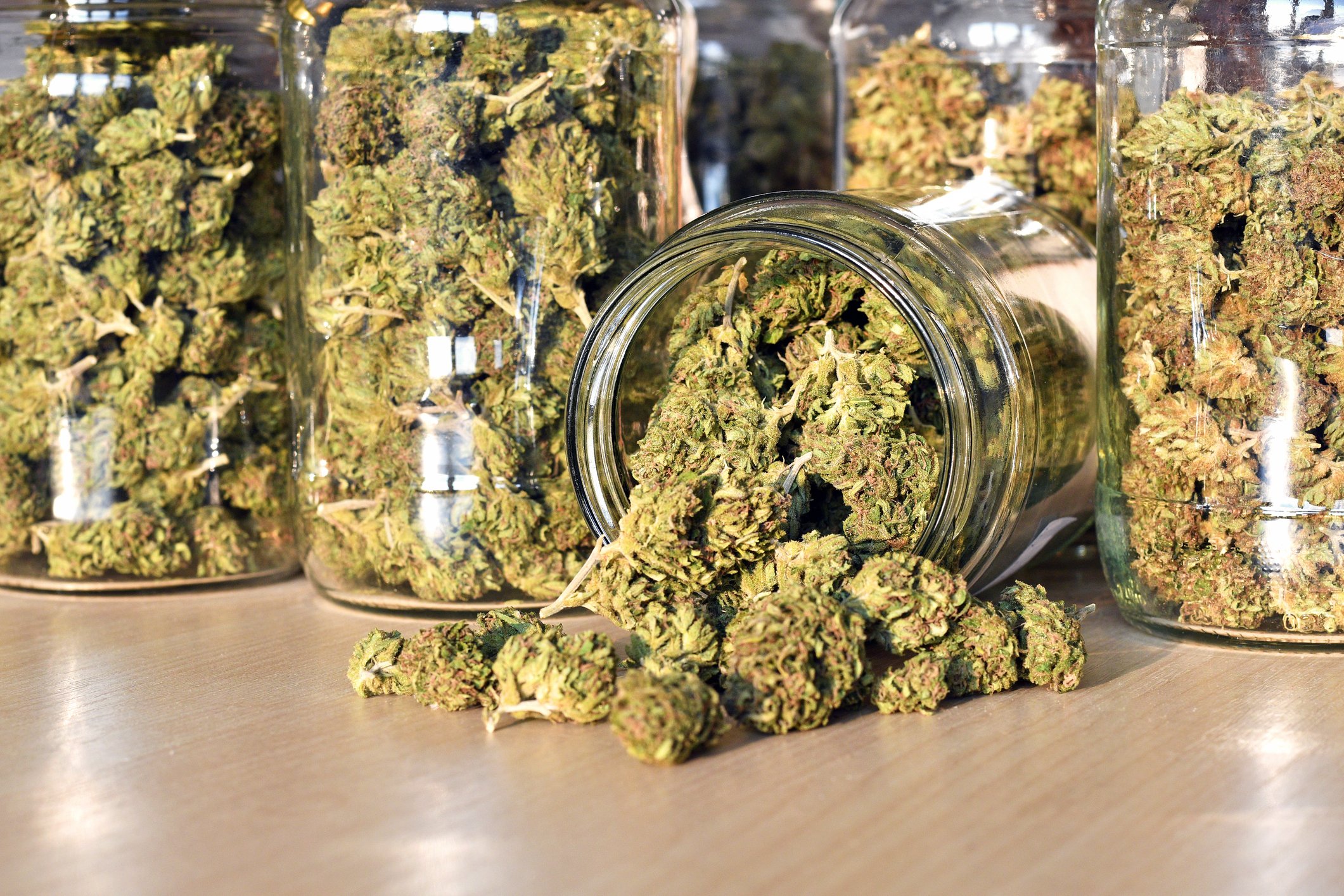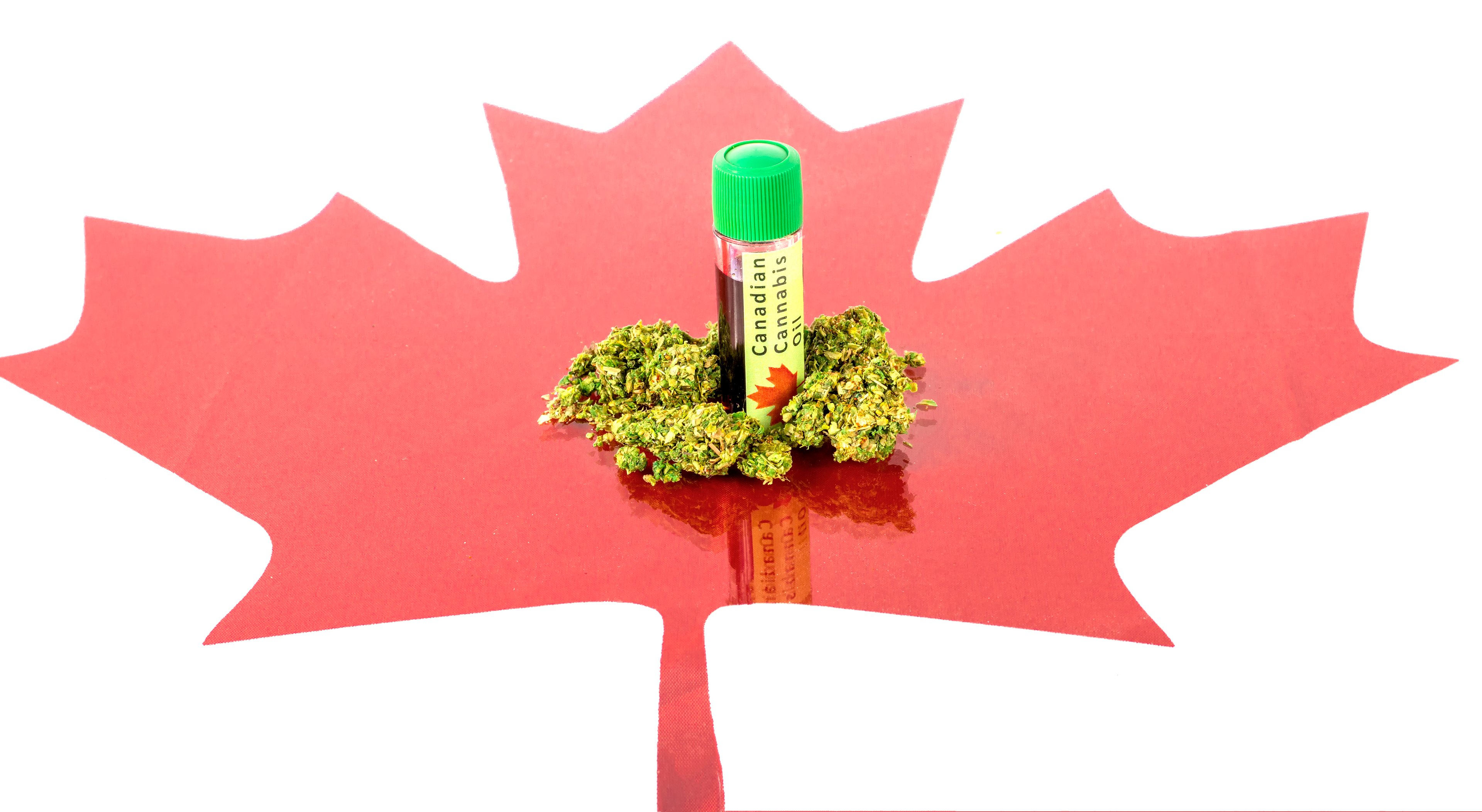Marijuana is arguably the hottest and fastest-growing industry in North America. According to cannabis research firm ArcView, legal weed sales in North America jumped by 34% in 2016, and they're expected to grow by 26% per year through 2021. We could be talking about a nearly $22 billion industry in just a few years' time if these projections prove accurate.
There's certainly good reason to believe we'll continue to see superior legal sales growth. Mexico legalized medical cannabis back in June, while Canada is in the midst of reviewing legislation that would make recreational weed legal as of July 1, 2018. These two factors alone could generate billions in additional annual sales. Within the U.S., more states appear ready to move forward with recreational legalization efforts in 2018.

Image source: Getty Images.
Some marijuana stock valuations are appalling
It's not often you find an industry with such steady high-growth potential, which is why marijuana stocks have been a popular choice among investors. Unfortunately, being a popular industry has caused pot valuations to soar into the stratosphere. A number of them simply don't make sense.
For instance, I've been hypercritical of Axim Biotechnologies' (AXIM 5.92%) valuation in the past, and still remain strongly concerned for the sake of its shareholders. This cannabinoid-based drugmaker has a pipeline that features more than a dozen proposed clinical trials, but we've witnessed only a handful moving forward into phase 1 studies. It would take a lot of capital to run 15 clinical studies, and according to its most recent quarterly report, the company had just $3.08 million in cash on hand. What's more, with $3.24 million in assets and $6.73 million in current liabilities (due within 12 months), it may not have the funding to keep the lights on. Despite this, its share price is up over 1,500% over the past two years.
I'm also not a huge fan of Aurora Cannabis (ACBFF 2.48%) following a more than 150% move higher in just a one-month time frame. Though the Canadian-based medical cannabis grower is on track and on budget with its pivotal Aurora Sky project, which will generate 100,000 kilograms of low-cost dried cannabis annually when complete in mid-2018, it's only recently pushed into the black. What's more, the company has been diluting the daylights out of its shareholders, with its outstanding share count exploding higher by more than 2,200% since mid-2014. Even though bought-deal financing and convertible debentures are a source of easy capital for the company, it's going to catch up with shareholders at some point.

Image source: Getty Images.
This might be the only undervalued marijuana stock
However, one pot stock might actually be undervalued, even taking into account the fact that it's doubled since the end of July. Ladies, gentlemen, and marijuana-stock investors, say hello to Canada's MedReleaf (NASDAQOTH: MEDFF).
If the name isn't all that familiar, it's because the company only went public earlier this year. It's a medical cannabis play in Canada that, like Aurora, is itching for Canada's parliament to legalize recreational marijuana. Among the big four companies in our neighbor to the north, MedReleaf has an opportunity to garner perhaps 10% of both the medical and recreational market share (assuming approval).
What's been really notable about MedReleaf, with the exception of its most recent quarter, is that it's been significantly more profitable than its peers. This is a result of the company focusing its efforts on a more affluent medical clientele in Canada. It offers a more expansive array of cannabis strain prices, and has really pushed into cannabis oils and extracts as a source of sales growth. Cannabis oils and extracts have considerably higher price points relative to dried cannabis, meaning they also lead to better margins (MedReleaf controlled 44.5% of the Canadian cannabis oils market share as of the end of 2016). This means MedReleaf doesn't have to work nearly as hard as its peers to generate the same amount of profit.

Image source: Getty Images.
The company also ended its most recent quarter with about $58 million in cash and cash equivalents. Though that's dwarfed by the more than $268 million Aurora Cannabis has in its coffers, MedReleaf has been much more responsible about its capital raises. Rather than diluting its shareholders, MedReleaf has been living off the capital raised from its initial public offering. This doesn't mean it won't seek a bought-deal offering like its peers in the future, but it does suggest that management may have a better focus on its shareholders than its peers.
With MedReleaf having a genuine opportunity to lead the industry with the highest operating margin, it could easily be undervalued if Canada moves forward with adult-use legalization and it secures about 10% of the medical and recreational market.







